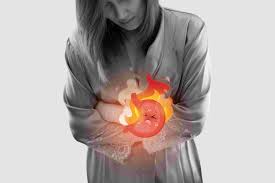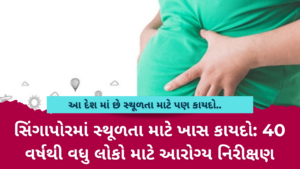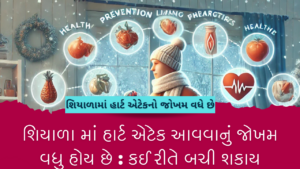- Do you experience heartburn more than twice a week? It could be GERD.
- If you experience heartburn regularly for 10-15 years, it could progress into cancer.
- Being a passive smoker also causes heartburn. And smoking obviously does.
- Wearing loose clothing can help keep stomach acids where they belong. So can losing weight and eating smaller meals.
Acid reflux occurs when the acid from your stomach repeatedly flows back into the tube connecting your mouth and stomach (esophagus). This backwash of acid irritates the lining of the esophagus. Many people experience acid reflux from time to time. However, when acid reflux happens repeatedly over time, it can cause GERD.
Gastro-esophageal re flux disease (GERD) can also have symptoms like regurgitation of food or sour liquid, difficulty swallowing, coughing, wheezing, and chest pain — especially while lying down at night.
flux disease (GERD) can also have symptoms like regurgitation of food or sour liquid, difficulty swallowing, coughing, wheezing, and chest pain — especially while lying down at night.
The purpose of the acid secreted in moderate quantities in the stomach is to aid in the process of digestion. At the end of the food pipe, there is a “gate” that opens into the stomach called the ‘lower esophageal sphincter’. Usually, this sphincter opens only one-way. Occasionally, the acid or the food contents are pushed back into the esophagus from the stomach, and the esophagus lining gets disturbed. The lining of the esophagus is not as well protected as that of the stomach. This acidity of the esophagus causes heartburn
Most of the times, there’s no backflow of the acid, but when a person does not e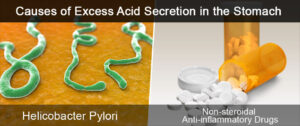 at at regular intervals the acid gets accumulated. The increased quantity of acid can cause discomfort to the individual. Helicobacter pylori (bacteria) and non-steroidal anti-inflammatory drugs (eg. ibuprofen) are the two most commonly known triggers of acid in the stomach. Stomach cancer and ulcers can trigger gastrin that stimulates the production of hydrochloric acid.
at at regular intervals the acid gets accumulated. The increased quantity of acid can cause discomfort to the individual. Helicobacter pylori (bacteria) and non-steroidal anti-inflammatory drugs (eg. ibuprofen) are the two most commonly known triggers of acid in the stomach. Stomach cancer and ulcers can trigger gastrin that stimulates the production of hydrochloric acid.
The most common foods that cause acidity and their mechanism has been discussed in a tabular manner at the end.
If you experience recurr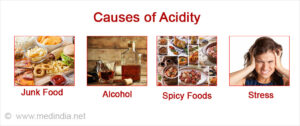 ent episodes of acid reflux, there are different diagnostic tests that can help in understanding the extent of acidity and help in deciding the course of the treatment. Various tests like barium swallow test, pH monitoring of the esophagus, endoscopy or in some cases even biopsy can be advised.
ent episodes of acid reflux, there are different diagnostic tests that can help in understanding the extent of acidity and help in deciding the course of the treatment. Various tests like barium swallow test, pH monitoring of the esophagus, endoscopy or in some cases even biopsy can be advised.
Acidity and acid reflux can be treated with changes in diet, lifestyle and medications. Diet chang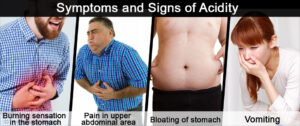 es include eating smaller, more frequent but regular meals, choosing the right food and avoiding foods that can trigger acidity. Lifestyle changes include quitting smoking and drinking, increasing physical activity and weight management. Medications for acidity may be prescribed or bought over the counter.
es include eating smaller, more frequent but regular meals, choosing the right food and avoiding foods that can trigger acidity. Lifestyle changes include quitting smoking and drinking, increasing physical activity and weight management. Medications for acidity may be prescribed or bought over the counter.
When acidity is not treated properly or at the right time, the excessive acid in the stomach can weaken the defence mechanism of the stomach lining. Ulcers can be formed in the esophagus, stomach and duodenum. GERD is another complication of chronic acidity.
| Food type | Example | How acidity is triggered? |
| Junk food | Deep fried foods | Foods rich in oil and butter remain in the stomach for a long time and trigger more acid production. This is because fat slows down the rate of food passing into the intestine. |
| Eating issues | Overeating and eating just before bedtime | Overeating produces more acid in the stomach.
Eating within 1 hour of bedtime can cause the contents of the stomach to stay for a longer time and trigger acid production. |
| Caffeine | Chocolate, tea, coffee, soft drinks | Caffeine containing foods are highly acidic in nature and stimulate further production of gastric acid. |
| Citrus fruits | Lemon, orange, sweet lime, grapefruit | Citric acid in citrus fruits can increase the already acidic medium of the stomach. |
| Alcohol | Wine, beer | By nature, alcohol tends to relax all the muscles including the lower esophageal sphincter. Large amounts of alcohol can irritate the lining of the stomach and intestine or even bring the digestive process to a halt. |
| Soda | Carbonated drinks | The bubbles of carbonation tend to expand once they reach the stomach and create pressure on the esophageal sphincter, causing it to open the wrong way and result in heartburn. |
| Spicy foods | Paprika, vinegar, pepper, chilies, cinnamon | Though moderate amounts of spices are good for the digestive tract, high quantities can stimulate gastrin, resulting in excess hydrochloric acid in the stomach. |
| Medications | Pain killers, NSAIDs, antibiotics, chemotherapy medicines, bisphosphonates | Some medicines can cause the LES to relax and cause the acid in the stomach to regurgitate. Some of them can injure the esophageal lining and cause heartburn. |
| Stress | Worry, fear or depression | Our body responds to stress with a “fight or flight” reaction |
-STAY HEALTHY
Dr. Aishwarya Nair

